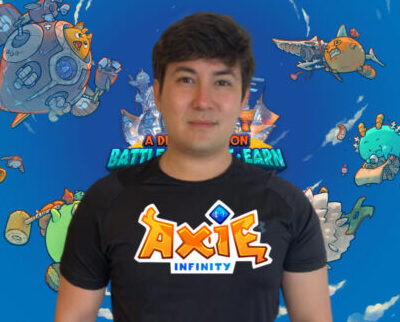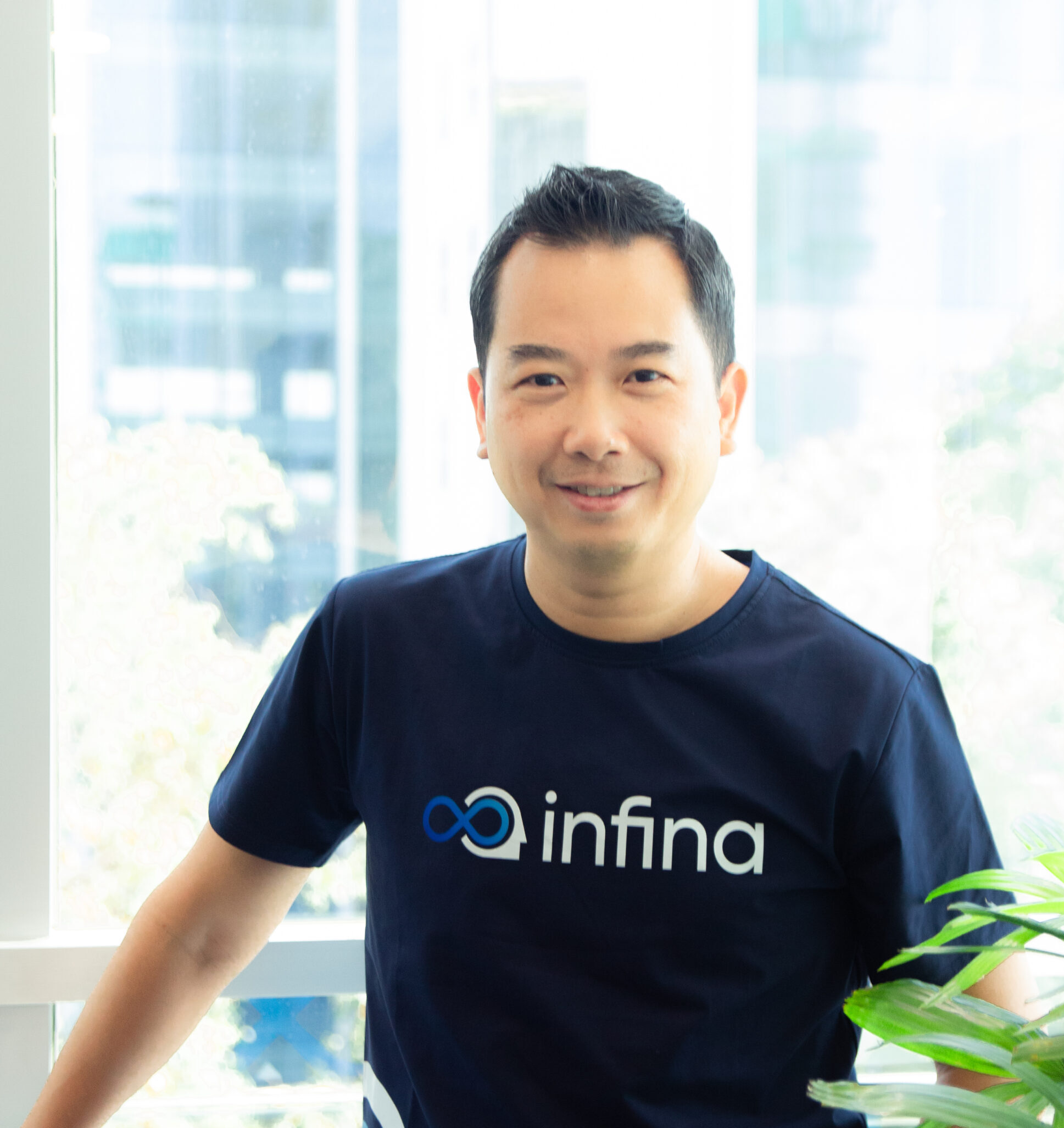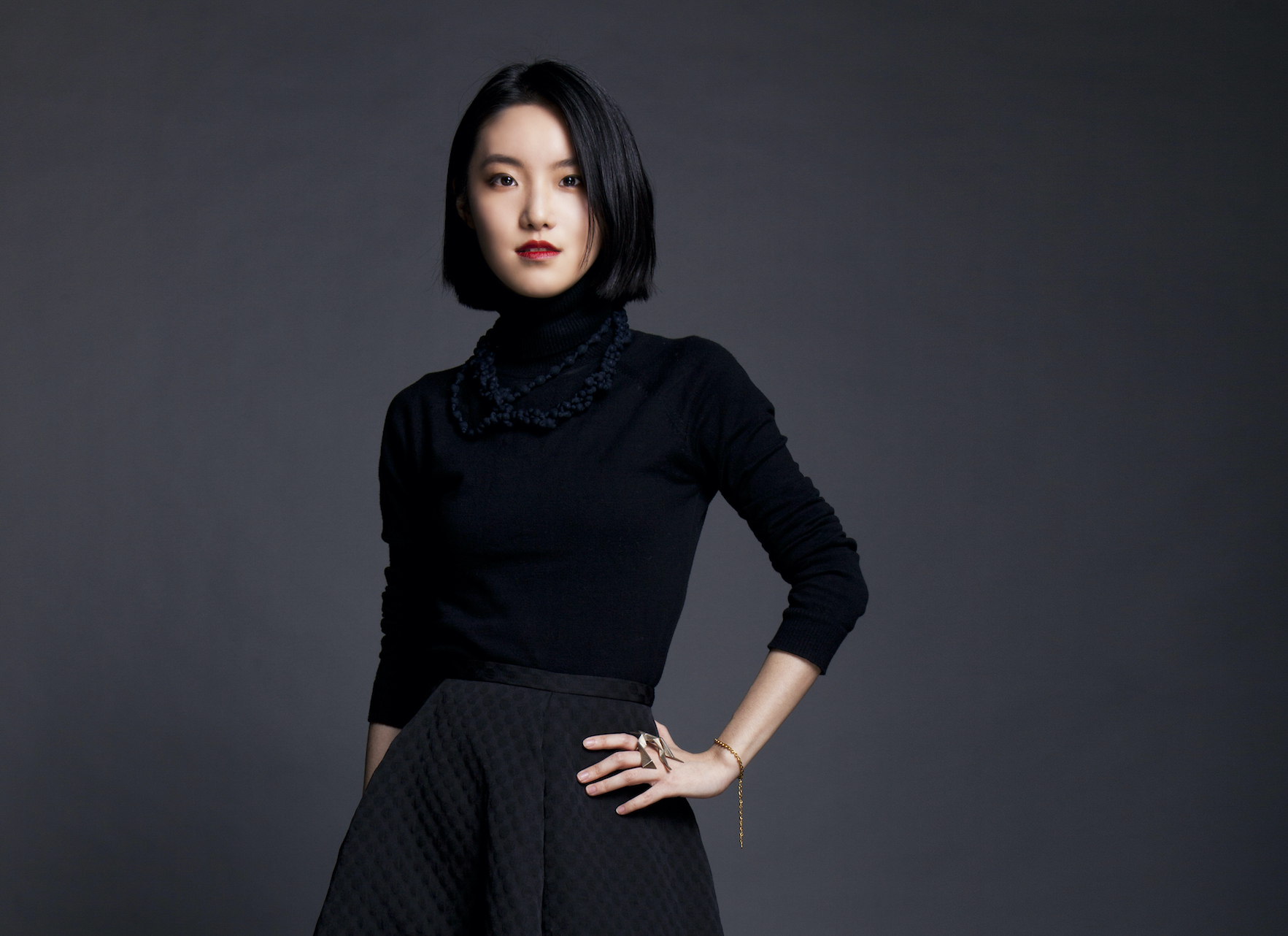William Bao Bean
I am helping cross-border startups to improve the lives of the next 4 billion users.
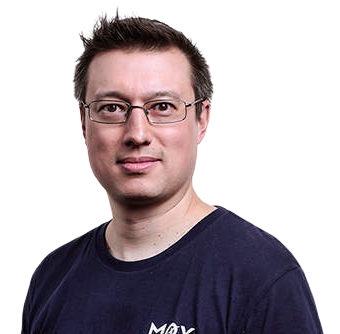
William Bao Bean is General Partner at SOSV and Managing Director of Chinaccelerator and MOX. SOSV is the #1 most active venture capital investor in the world, managing over $740m in assets under management and running six accelerators globally. Before joining SOSV, William was a founding Managing Director at Singtel Innov8 Ventures, supporting Greater China investments. Previously, William was a Partner at Softbank China & India Holdings, a venture capital firm backed by Softbank and Cisco where it oversaw investments in China and Vietnam. William also spent 11 years as an equity research analyst at various investment banks, including Deutsche Bank, where he was responsible for Internet and Telecom Equipment in Asia and China technology, media and telecom. He was ranked #1 stock picker for tech in China by Reuters Starmine and worked on IPOs in China for Alibaba, Kingsoft and eLong (Expedia China) as well as in India for InfoEdge (Naukri) and OnMobile. William is regularly quoted by The New York Times, South China Morning Post, Washington Post, Financial Times, Nikkei Asian Review and other media. He is currently based in Shanghai and Taipei.
Sign up to our newsletter.
AP: Please tell us about your family background, your mother has a very interesting background.
WBB: My grandfather Sandys Bao 包新弟 was born in Ningbo and grew up in Tianjin. He went to Shanghai Jiao Tong University and studied engineering. All his classes were in German back then. In 1935, he went to Cambridge in the UK for a Masters. He returned to China as an engineer during WWII and built electrical power plants in cities around China that didn’t have electricity back then. My mother was born in the city of Guilin, China in 1942, one of the cities that needed electrical power. After WWII, my grandfather was sent to the US on a trade mission to acquire materials to rebuild China. My grandfather thought the US trip was a great opportunity for the family so he later asked my grandmother, my mother and her older sister to join him, leaving my younger baby aunt with relatives in China. You can read about her experiences in my aunt Bette Bao Lord’s book Eight Moon.
My mother was four when she left China for the United States and initially lived in Brooklyn, New York. My mother grew up as a Chinese-born American in an era where there were almost no Chinese around. Immigration from China to the US was illegal until 1943 due to the Chinese Exclusion Act. After that, only 105 Chinese were allowed into America each year. My mother had an all American upbringing in Brooklyn and then New Jersey. I think she and her sister were the first Asian cheerleaders at Tufts University.
My parents met in grad school in Los Angeles. My mother Cathy Bao Bean pursued the academic route as a philosophy and religion professor and author, and also worked to improve understanding and communication between Chinese, American, Chinese-American and across generations. Until recently, she had been leading delegations of professors from the US, on their own dime, to teach Chinese professors Western pedagogy such as role-play. She also co-authored a Chinese-English, English-Chinese language textbook “The Chopsticks-Fork Principle X 2: A Bilingual Reader” with Professor DongDong Chen of Seton Hall University. It is one of the few textbooks that teaches Chinese language to English speakers and English to Chinese speakers and culture through humor. If you can joke in a language, then you can usually understand it.
On the Bean side, my father is an artist making pottery. There aren’t many potters out there who can make a living from it. My parents were beatniks, which is an early version of a hippie. We all have a rebellious streak – both sides of my family. My parents were hippies so I rebelled by becoming an investment banker.
AP: Were you fascinated by China and Asia at a young age? Did you study Chinese back then?
WBB: I didn’t really speak Chinese growing up. I went to Saturday classes for a short period of time as a kid but I didn’t learn much and it didn’t last long. Instead, I learned Chinese during college. I studied two years of Chinese but quickly realized that for me to continue, I would have to go to Asia to study it. I spent a semester in my junior year at Bowdoin College studying Mandarin in Taipei in 1993 and that experience really drew me to Asia. I went to Taipei instead of Beijing, mostly because my grandfather Sandys said Taipei was where the US State Department folks learned their Chinese back then.
Previously, I had been to China once in 1986, at that time my uncle was stationed in Beijing with the US government. We got to visit them and then travelled around China. That was the last time I went to most of the smaller cities in China. I’ve lived in Greater China for over 25 years and mainland China for almost 14 years now, but haven’t been back to Guilin or my grandmother or grandfather’s ancestral homes in Ningbo or Anhui.
“In our family, it doesn’t matter what you do as long as you work really hard at it, you do the best you can. We try to be the best at it. Whether it is making pottery like my father or being a philosopher like my mother. Most people don’t think making pottery or teaching Western Philosophy as something you can build a career out of, but they did.”
AP: What were your dreams as a child given the interesting careers of your family and relatives?
WBB: I really enjoyed reading American history growing up and an inspiration was the work that my uncle Winston Lord did during his time as US Ambassador to China. I was in high school during the 1989 Sino-Soviet Summit and got to watch my aunt Bette appear live on satellite TV from Tiananmen Square with veteran newscaster Dan Rather. That was something special and really drove me. There is a big difference between reading history and being part of it. At age 15, I got a subscription to the Foreign Affairs journal. I read every article, sometimes twice, and although I didn’t understand most of what people were talking about, things started to sink in.
After graduating from college, I worked for the US Commerce Department in Taipei for almost a year, mostly for free. That internship cured me of any desire to work for the government. It was just so slow. Years later I spoke to my uncle Winston and he had the same experience. He was one of the fastest promoted staff in the Foreign Service at the time, moving up three times in four years, yet he still left the system and returned later as a senior official.
I studied hard but I ended up doing something else with it. In our family, it doesn’t matter what you do as long as you work really hard at it, you do the best you can. We try to be the best at it. Whether it is making pottery like my father or being a philosopher like my mother. Most people don’t think making pottery or teaching Western Philosophy as something you can build a career out of, but they did.
AP: Tell us about the early days of your career and what was the breakthrough moment for you?
WBB: I started off as an English editor at a local Taiwanese investment bank in 1996, editing local analyst reports and explaining the Taiwan tech industry in English to international investors. Taiwan at that point was not the place to learn how to be an investment banker. I later went back to New York and worked for Bear Stearns. After they hired me as an associate at the age of 22, they realized that I didn’t really know accounting. They gave me about six weeks to figure out how to do a financial model or else I’d be out of there. I had a couple of examples of a model and the annual reports of seven Hong Kong property companies. It was one of the most painful things I’ve ever done but I taught myself enough modeling to keep my job and we even ended up publishing the report on the property sector.
Then the Asian Financial Crisis happened and they no longer needed an Asia tech analyst. I luckily got transferred to work under the Head of the US tech equity research team, Andy Neff, who was one of the top-ranked PC and enterprise hardware analysts in the world. It was interesting, fast-moving and required little financial modeling. I had only a year of covering tech so I tried to learn everything I could about the industries we were covering. It was the late 1990s and tech was going up. We published 250 pieces of research a year. I got to do some amazing things that most 23-year-olds don’t get to do like teaching Michael Dell how to scroll down on his Blackberry using the space bar. We also used to cover Apple when it was near bankruptcy, before the whole Steve Jobs comeback. That period was a bit of a blur, we worked extremely hard and I was both a sponge and a machine.
I had a career decision to make at that point. I could spend my free time studying for the CFA or I could write a white paper about the future of technology and how the lives of consumers would change because of it. I opted to write the white paper instead of studying. The white paper launched my career. Back in 1999, we had a vision for devices that were smart and connected to the internet, which we called iAppliances. This was back in the day when Apple just started putting a small “i” in front of everything. It was a new thing back then. I wrote a big report on Palm Computing. The Palm Pilot was very similar to an Android smartphone today, except it didn’t connect to the internet or make phone calls. Many of these companies no longer exist but their innovation lives on.
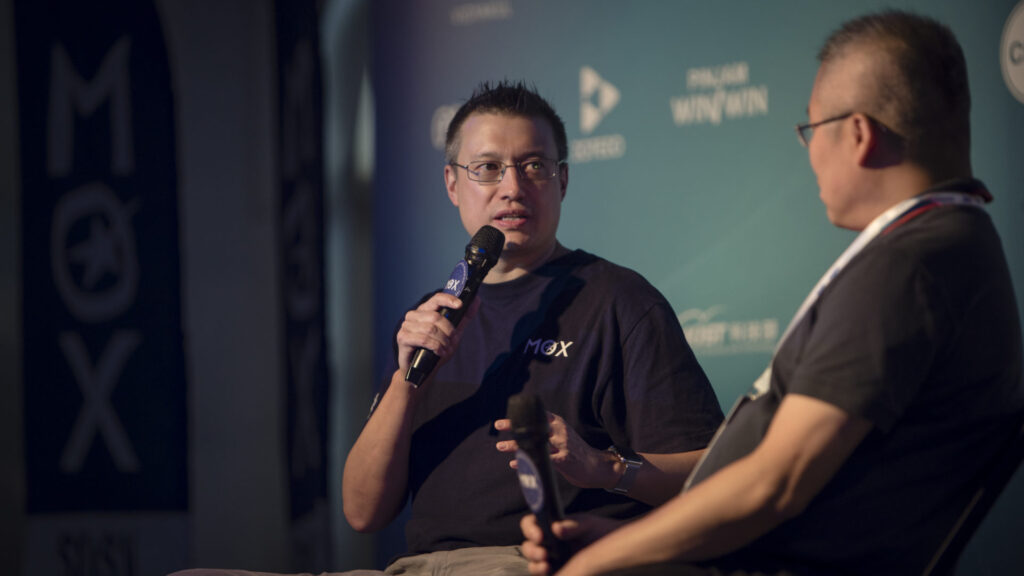
AP: Why did you leave banking?
WBB: I got bored. I came into the tech industry before the dot-com bubble popped in 2000. When the US got hit by the crash I came back out to Asia as a technology analyst with Deutsche Bank. Back then Deutsche Bank was at the very bottom, maybe ranked number 13 out of 14 in the region in terms of both trading volume and investment banking deals. I was part of a massive hiring wave, and with 7 years as a tech analyst under my belt and some experience with the US Internet sector, when the internet companies in China started to take off in 2003 and 2004, I jumped on it. The companies were really small. No one cared about China Internet. I had to fight for time to present to the salespeople at the morning meeting – it’s that kid talking about the Tencent company again.
Then the China Internet companies started to grow. I was constantly in China talking to people so I had a good sense of what was going on and so my investment calls were generally right. I was also a little crazy because I was the only analyst in Asia tech putting SELL ratings on stocks. I once even put a SELL rating on Tencent! In 2005, I was the #3 stock picker in China and Hong Kong for all sectors, all firms, all analysts according to Reuters Starmine. I was the #1 stock picker in tech. I was bored, I was 32, and I was also a little envious because the investors I was teaching about China Internet were making literal mountains of money.
I took the leap into venture capital. I took a 75% pay cut. I thought it would be fun. I thought I would learn a lot. It was fun and I have learned a lot but it also took 11 years to start seeing some success. Back then, I was probably the most well-known VC with the worst track record. Public market equities and early-stage startup investing are very different and have almost nothing to do with each other. Luckily, in the last six or seven years, I’ve put what I learned to work and offset the first few years where I barely broke even.
AP: Was Softbank the first VC you joined?
WBB: Yes. Kabir Misra, my counterpart on the investment banking side of Deutsche Bank, used to give investment ideas to Masayoshi Son, the founder of Softbank. Softbank used Deutsche Bank Japan for many financings including US$18bn in debt to buy what is now Softbank Mobile from Vodafone. Kabir used to show ideas to Son-san. Kabir and I weren’t allowed to talk to each other without a lawyer present because he was in investment banking and I was in equity research. Still, we had a great relationship.
So I joined him and his team and we were off to the races with a US$105m fund, half from Softbank, half from Cisco and a small contribution from Deutsche Bank. The firm was called Softbank China and India Holdings (SBCI) and we invested in Asia excluding Korea and Japan. It was a great learning experience, I had a wonderful time but I did almost everything wrong and made every rookie mistake possible. I was at Softbank for four years. We didn’t do a second fund because my partner Kabir had to go to the US for personal reasons and he had the SoftBank relationship.
In 2010, I went to SingTel to help lead SingTel Innov8, a new corporate venture capital firm as one of the three founding Managing Directors. SingTel was great because it was a platform that allowed me to continue the learning process. For four years I had both a lot of freedom to invest but also a framework from which to work. This time I didn’t invest in too many local-local Chinese companies. Cross-border startups always seemed to work out best for me and bringing China technology and innovation to SE Asia was my mandate so it was a good fit. I’m not local Chinese and I’ll never be local Chinese. Focus on what you are good at.
“As a VC we got a number of deal referrals from the Alibaba network and other investors. In hindsight, we should have done most of these deals. We passed on the Series B of JD.com because they had atrocious unit economics. JD would take a giant pallet of renminbi and set it on fire every day. When the people you trust refer investments to you — pay attention. That’s the biggest lesson from my Softbank experience.”
AP: What did you learn from the Softbank experience?
WBB: The first lesson is — if someone refers a company to you, that’s a good filter and you should pay attention. We received tonnes of referrals from our network. There were three investment banks running the Alibaba IPO and my role as the lead at Deutsche Bank was to explain Alibaba to the world. I met Jack Ma five or six times over lunch or dinner and also spent time with people like Savio Kwan, who was the former COO of Alibaba and the first senior executive hired externally. I also got to meet Jerry Yang, the co-founder of Yahoo. I spent a lot of time in Hangzhou back then, we even brought Bill Clinton for Alifest right after his second term as President ended. Jack always loved to say he didn’t have to pay President Clinton to come to speak in Hangzhou. And it’s true he didn’t because we paid for it. That was a lot of fun.
As a VC we got a number of deal referrals from the Alibaba network and other investors. In hindsight, we should have done most of these deals. We passed on the Series B of JD.com because they had atrocious unit economics. JD would take a giant pallet of renminbi and set it on fire every day. When the people you trust refer investments to you — pay attention. That’s the biggest lesson from my Softbank experience.
The second lesson is timing. I went to Vietnam in 2007/08, it was way too early. We partnered with IDG Vietnam, with Henry Nguyen and Butch Reddy. I was the Series A for Peacesoft (Hoà Bình), now known as NextTech. Their founder, Binh was only 24 at the time and now he’s a shark on Shark Tank Vietnam. We helped them to bring in eBay for a partnership, leading to Peacesoft running ebay.vn. NextTech has over 2000 people now but it’s 14 years later. I was way too early.
I got lucky investing in blockchain fintech in 2015 with our investment in Bitmex which, according to the press, is a unicorn. As a traditional equity investor going into blockchain in 2015, I was very early. I did four investments in blockchain Fintech exchanges in 2015 and 2016, one of which is very successful. And then I stopped for four years. The timing wasn’t right. At the end of 2019, I did another four investments in Blockchain Fintech but this time in blockchain financial products. Everybody always talks about team, industry and marketing but timing is very important for a VC.
AP: Tell us how you got involved with SOSV and Chinaccelerator. What makes SOSV different to the other VC firms?
WBB: I became a mentor in the first year that Chinaccelerator got started. When Chinaccelerator launched in 2010 in Dalian, it was the first accelerator in China. And as far as I can tell the first in Asia! The foreign startup scene in China wasn’t big back then. There were the Sina guys from US and Taiwan, the Sohu guys returnees who came back from the US and some returnee and foreign VCs. It was a pretty small ecosystem. A bunch of friends of mine joined as mentors so I did too although at the start I didn’t mentor that much. I started to spend more time mentoring when I began commuting from Shanghai to Beijing in 2013 and Todd Embley, Chinaccelerator’s program director at the time, brought me up to Dalian for a two-day visit in 2014 to spend time with Batch 5.
In mid-2014, Sean O’Sullivan, the founder of SOSV was in Shanghai for a visit and we judged a small startup competition together at the People Squared (P2) Hero Center, an early Shanghai coworking pioneer. P2 was one of the first co-working spaces in all of China and the Chinaccelerator office has been headquartered there for the past 7 years since moving to Shanghai. After judging the competition, Sean and I had a casual meeting and the first thing he said to me was, “We’d like you to spend more time at Chinacelerator.” I thought that he wanted me to spend more time mentoring the startups but instead, he wanted me to join SOSV as a General Partner and run Chinaccelerator. I accepted.
When you judge a startup competition with someone, and you’re talking about the companies afterwards, you have a very clear sense of their thought process. We had the same concerns and the same interests in the few companies that pitched so our thought processes were very similar. I had some questions and we had a follow-up call but that was pretty much it. It was a 15-minute interview though I had been a mentor at Chinaccelerator for five years by that point. I’m the type of person who doesn’t particularly like to be told what to do. At SOSV we get a good balance of autonomy and freedom on the one hand and structure and discipline on the other. Basically, we all have a good amount of rope to go hang ourselves with. I made quite a number of mistakes over the eight years of VC before I came to SOSV, so it was a good time for me to go get some rope.
We’re also one of the few VCs where basically everybody in the team gets carry in the fund. They might not get that much since we’re not a huge fund but everybody – the ENTIRE TEAM – gets profit-share. This is almost unheard of in the venture capital. In addition, when we get some sponsorship from a corporate or when the government gives us a grant, we share it all out. In the last six years since joining SOSV, we have grown the team massively and people are choosing to stay with SOSV longer. We’re helping people, not just the startups that we invest in but the people in our team, to get to where they want to go with their careers, just as I eventually got to where I wanted to go with mine.
Since we launched, the overall size of the funds we invest have grown and so has the amount of funding that I invest in cross-border internet startups. When I showed up, there were three people at Chinaccelerator and I was the fourth. Now, my partner Oscar and I have a 35 person team. I got lucky with a few companies and then I got a unicorn which helped a lot. We’re now ranked the 6th as the most active VC in Southeast Asia and the third most active in India according to Tech in Asia. We are the second most active across Asia/Rest of World in 2Q20 according to Pitchbook. Hopefully, we can exit the unicorn and get a dragon. A dragon is an investment that returns your entire fund. That would be pretty amazing.
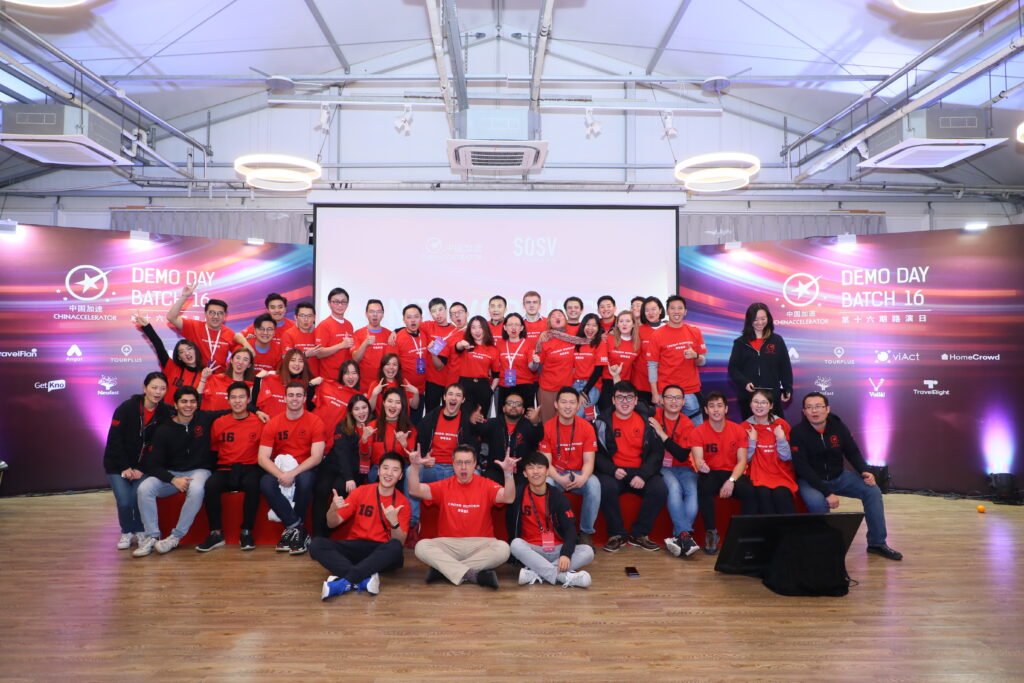
AP: What were the reasons for establishing the Mobile Only Accelerator (MOX) in Taiwan?
WBB: I miss sushi and Taiwan has the second-best sushi in Asia, outside of Japan. Japanese people will fly to Taiwan to eat sushi. It’s that good and extremely reasonable in terms of pricing.
Joking aside, MOX was something that I actually wanted to start with Singtel. While I was at Singtel, I was asked to figure out how to keep a telco relevant in a world dominated by super apps that were coming out of China. My objective was to make sure that the telco had a consumer business model in a world dominated by big internet. So we invested in a company that had a platform where we could turn Singtel and its affiliated telcos into a super app with a platform of services. This was 2012. The company went in another direction and failed. The telco also couldn’t get its head around the internet and tried to build or buy a portfolio of services instead of partnering with startups like Wechat or Xiaomi did, and so it failed. With most telcos, they ended up being dumb pipes. China Mobile used to be a top-three global carrier and now it’s a dumb pipe with an EBITDA that looks like a ski slope.
Today you can see the vision I had in what is now Reliance Jio. We wanted to turn Singtel and its affiliates such as Bharti Airtel in India, Globe in the Philippines or AIS in Thailand into a platform with partnership with startups. The telcos would bring the users, the payment infrastructure, the trust while the innovation and the services would come from the startups. It would be a revenue share model, just like Xiaomi, Jio or Tencent with WeChat and not an advertising-based media model like Google and Facebook. When I got to SOSV in the first year, I still had the itch to try and build a revenue share based platform where the unit economics for a consumer internet company would make sense.
The China model or the consumer internet model is:
(1) You raise a bunch of money
(2) you buy a bunch of users, spending $1 to make 20 cents or 10 cents
(3) you get big
(4) you raise even more money to get bigger
(5) then finally you start making money 4-8 years later.
This is the Chinese Internet model or perhaps the SoftBank Vision model. Money is a weapon. The model looks a bit dead right now but it’s been wildly successful. Whoever’s got the most money can buy the most users. The challenge for early-stage VCs like mine is that we don’t have enough cash to invest to buy the users. I don’t really want to invest just so the startup can immediately send money to Google and Facebook, who dominate the advertising market.
I founded MOX five years ago to flip the business model. Our vision is to partner with somebody who has users and trust. We get promotions from them for free in return for revenue share. Customer acquisition should cost zero and if you make some money after that, you have positive unit economics. The same model that Jio is using and to some extent, Xiaomi and WeChat. We have tried to bring real change, a real revolution to the consumer internet space. We want to change the business model where you pay for advertising to get users, that’s usually a win-lose situation. With the revenue-share model, it’s a win-win-win situation. It’s double opt-in. Nobody has to give away free users and nobody has to take free users. It’s finally working, eight years later. This is really a big change in the market. I didn’t invent it, it’s been around for a while. And from 2015 to 2019 we didn’t get very far, only 5-6 million monthly active users. But over the last 12 months, we have grown 10x to 55-60 million monthly active users. All with zero marketing spend.
At SOSV, we strive to ‘Make The Impossible Inevitable’. MOX is bringing a revolution to venture capital like very few other VCs in the world, investing in companies and tying them together into an ecosystem. We aren’t a platform like Xiaomi or Jio. SOSV MOX is a VC with an ecosystem. We’re an ecosystem where people who like and can get along with each other can double opt-in, they can decide if they want to work together. We don’t force them. We don’t take revenue share. We just help and enable them to grow their user bases and go into multiple different countries without spending money on advertising. We’ve been able to get the best entrepreneurs from all around the world to join because of the value that we have instead of being just another check. We’ve partnered with some of the biggest folks out there such as newspapers, TV stations, shopping mall chains, retailers, banks, and even telcos and cell phone brands. And our goal is to build the MOX ecosystem into a top ten global internet player by reach, revenue and market value.
“We’re an ecosystem where people who like and can get along with each other can double opt in, they can decide if they want to work together. We don’t force them. We don’t take revenue share. We just help and enable them to grow their user bases and go into multiple different countries without spending money on advertising.”
AP: Do you think small, medium businesses are building an alliance to defend themselves against FAANG and BAT folks? What is SOSV’s position in this debate?
WBB: We are. It’s called MOX. And hopefully, they will all join the alliance. We don’t charge anything for it. I think there’s definitely a backlash and unfortunately, the backlash has a nationalist tinge to it. I think open borders are great. When the borders close, it’s very difficult to do cross-border internet. Most VCs can do the maths, they can understand that if you pay $1 to make 20 cents, it’s not a good deal. They’re not going to fund people who have that type of business model, which is basically the entirety of consumer internet startups today unless you are part of MOX or another ecosystem. Without ecosystems, innovation is stifled. You have entrepreneurs who have products that people love, who solve problems, who do amazing things, but the solutions they build never see the light of day because big internet companies operate walled gardens where they control everything. Apple is actually pretty egalitarian, it’s sort of meritocracy-based. You can game Apple, but they work hard against it. The problem is that Apple has, in spite of everything it tried to do, become what it hates most which is Big Brother. Google is even worse.
Google is in love with their technology. They don’t understand that they’re being manipulated all over the place and that they’re being run by their ad sales force. So Google has gone beyond ‘don’t be evil’ into a giant platform promoting evil. They are promoting their software into every nook and cranny of the internet including the mobile-first, mobile-only world in emerging markets. They want to make sure that they dominate those markets. When Europe told Google to pay the $5 billion fine in 2018 to ensure that Android is open, Google immediately sent out an email to all their partners and the local phone brands in Asia informing that this ruling doesn’t apply to them and that they still must install the entire Google bundle on Android leaving almost no memory for any other apps on low-end smartphones. For people who have a low income, Google is their internet. After the Google package gets installed in the factory, the phones don’t have enough memory left over to install other apps.
We are hoping to make the internet more open at SOSV. Hopefully, it will be lots of different people making money, not just 10 big world-leading internet companies making money. That’s the philosophy professor from my mother’s side coming through. There’s a real desire for me personally, with SOSV as a firm, or as a group of people to come together to try and make the world a better place. Sean put his money where his heart is and his mind is. He’s attracted a bunch of really crazy people to go along with him. SOSV is no longer a small family office, we’re the #1 most active VC in the world with $740 million USD under management, and some of the biggest investors and biggest corporations in the world backing us.
AP: SOSV invests in many verticals through its accelerators so there must be a lot of insights. Where do you see the next big trends? Are VCs transitioning to biotech or deep-tech?
WBB: Bio is deep-tech, hardware is deep-tech, internet software is deep-tech. Deep-tech is leveraging cutting edge technology to drive a change. Technology can also be in a vat. Most of the cellular agriculture looks like brewing beer. You put culture and microbes in, you take something that’s like goo and turn it into something that changes the world. That’s what my partners are doing at IndieBio, our biotech platform. It’s extremely technical and I don’t understand most of it. One area where I’m very focused on is artificial intelligence. Almost every one of our companies is leveraging AI. They leverage data and algorithms to solve problems, improve services, personalize marketing and increase efficiency. Startups can do things now that 3-4 years ago would have required an army of people and months of time.
How much does a candy bar phone cost right now? $5 USD. Android phones are like $50 USD. We’ve recently invested in a company that refurbishes Android phones. They’re selling them for $25 USD with a warranty and a certificate, bringing the cost down and the entry barrier down. We are also investing in blockchain to improve security, transparency and trust in areas like agriculture through our portfolio companies Scantrust and UNL. Coffee Exchange is helping the 20 million coffee farmers out there to make more money and enabling coffee drinkers to know who grew the beans.
I think the next biggest trend is the next 4 billion people who don’t have the internet. That’s our tagline for the last five years at MOX. The amazing thing about the next 4 billion is that they’re now the next 3 billion people. Since we started MOX, almost 1 billion new people have connected to the internet and are using it regularly. That’s going to be one of the biggest revolutions — bringing technology, services, information and education to people who didn’t have it before.
People think it’s strange when Google focuses on people who make about $1000-$1500 USD a month. When we first started, we focused on people who were making $250-$500 USD a month. Now, we focus on people who earn about $150 a month. Those are very different economic strategies. We’re helping people lease their own smartphones, change their lives through services like microloans even though their total monthly wage is only about $125-$150 USD. Is it going to get us super-rich? Probably not. A lot of it is cliche but we are in a very lucky position to be improving lives day-to-day.
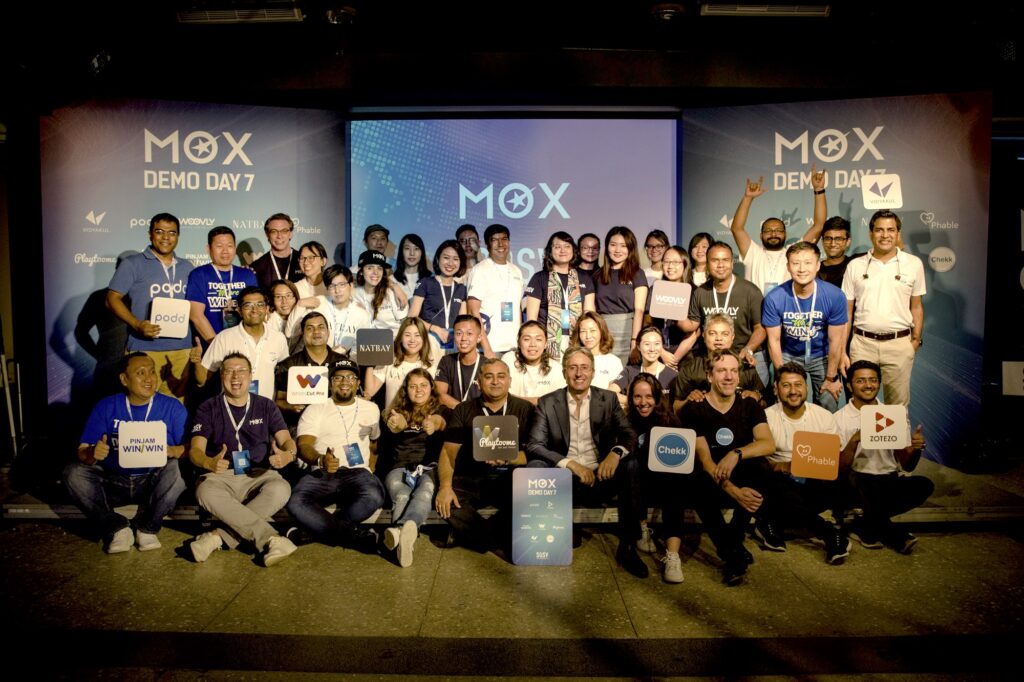
AP: Apart from Bitmex, what’s another interesting company in the SOSV portfolio that you are excited about?
WBB: We partner with a lot of corporations that we don’t publicize very much. Previously, we worked with a drug company called Sanofi. They wanted to leverage startups to bring innovation to the company and one of the challenges that they had two years ago was, “How do you get people in Tier 3, 4 and 5 cities to take their medicine?”. For people who are not familiar with China, those are the smaller cities and places with more middle-to-low income as opposed to high-income cities Tier 1 cities such as Beijing and Shanghai. China and India are the top two countries in terms of chronic and lifestyle diseases — hypertension, high blood pressure and diabetes.
Sanofi is one of the largest drug companies in the world, they’ve got a large revenue stream from diabetes drugs and China is a big diabetes market. So how do you get people in the countryside and people in Asia to take their medicine? People in Asia have completely different habits to those in North America, Australia and Western Europe. So when I bumped into Phable, an Indian company that has a solution for that problem, it was a very quick investment decision. We knew that it was a problem since we had already spent six months on the problem in China. India also has a huge diabetes problem.
Phable is a rocket ship. The reason that we know it’s a rocket ship is not because they raised a lot of funding. They’re growing so fast with very little funding. If you show somebody Phable, the click-through rate is very high, conversion to download is also very high and conversion to registration is also very high. They have a strong retention rate. Not just the patients and their families but also the doctors because they make more money because of Phable. This is a platform that is solving everyone’s problems – the hospitals, the doctors, the patients, their families, the drug companies, the equipment makers and testing labs.
We call what we do cross-border innovation arbitrage. We’re taking challenges or innovations from one market into other markets. For Phable the service solves a problem and almost sells itself. When you see a company like that, you double down. I also did something I almost never do, I actually joined their board of directors, which is a big commitment because we have over 140 active companies in the cross-border Internet portfolio.
AP: You’re one of the hardest working investors out there. How do you balance the time between work, family and other personal causes that you care about?
WBB: Most people spend their time on five things: friends, family, work, sleep and exercise. I’m sure there is other stuff but that’s how most people spend their time. If you do a startup, the saying goes you can only pick three things to spend time on. I chose two. I spend time with my family and then I have work. Work is a platform for me to focus on the issues I feel strongly about and spend time with amazing people who are changing the world. These people have become my friends so I get two for one. I’m in most of the meetings for all the companies in both Chinaccelerator and MOX. I really enjoy it, it’s fun helping entrepreneurs. And now that we have a bigger team helping me, I can be more strategic, to think about businesses in a different way, and to focus on the things I’m good at such as helping the companies with their strategies, partnerships and fundraising.
In time, I’m going to get more opportunities not just to invest money, but to give money away. I want to be good at supporting causes that might not actually have an IPO or an exit opportunity. I spent some time earlier this year before COVID-19 hit with one of the co-founders of BitMex, Ben Delo, who has committed to the Giving Pledge. He’s the youngest self-made British billionaire, according to the press. He’s being very intentional about it, trying to be data-driven as he is a data guy. I’m never going to be able to give away as much money as he does but if I’m going to do it, I also want to bring the same rigor and similar data-driven approach to philanthropy as investing.
Sean has done that. When he exited MapInfo, he allocated $7m USD towards angel investments and another $7m USD into his foundation, The O’Sullivan Foundation. When Bill Gates was giving $1.5 million USD to Khan Academy, Google put in another $2m USD, Sean gave $5m USD. One of the really cool things about our fund is 15% of our partners’ carry goes directly into the SOSV foundation.
The third thing is family, which is a real pain because I haven’t seen them since January 2020 and it’s now October. They left China to get away from COVID-19 quite early. If you are going to do the five things, and one of them is family, make a big effort to spend time. Since last year, I have been trying to cut down my travel time and to be more present at home. I reduced my travels from 60% down to 28% of my time in 2018 and 2019. My kids are pretty much grown up now. We’ll probably end up spending a lot more time together in the future than we did in the first five years when I was at SOSV, but there’s nothing like the childhood years. When you look at the five things and make your choices, actually follow through on them and do it. Don’t spend all your time on just one thing, which for me has been building Chinaccelerator and MOX at SOSV.
“I think the next biggest trend is the next 4 billion people who don’t have the internet. That’s our tagline for the last five years at MOX. The amazing thing about the next 4 billion is that they’re now the next 3 billion people. Since we started MOX, almost 1 billion new people have connected to the internet and are using it regularly. That’s going to be one of the biggest revolutions — bringing technology, services, information and education to people who didn’t have it before.”
AP: What are three pieces of advice would you like to share with young Asian Pioneers readers?
WBB: The first advice is to have OKR, which stands for Objectives and Key Results. We have all written school applications and answer the standard American questions such as, “Where would you want to be? Where do you want to go? What do you want to do?”. Have a one-year outlook and a three-year outlook, which seems like forever when you’re young but think about it, spend some time on it. I did this in my 20s and the funny thing is — when I made my goals, I thought they were fantastical but in the end through hard work and luck, I achieved them.
The second advice is to talk to other people. Old people or older people don’t mind talking to younger people as long as you are somewhat reflective. They don’t mind mentoring, they don’t mind giving a bit of advice here and there. Get mentors, try and ask nicely for advice from people who have been around the block. Prepare beforehand, before you ask them. They don’t need to be famous people but people who have been there and done that. Having success is important but they don’t need to be successful. They need to have failed and have succeeded. Don’t think that you need to go after the richest guy on the block or the richest woman on the block. That’s not success. When I went to Asia, there was nobody to be my mentor. So I started mentoring other people, and that has worked out quite well for me. Always remember that the mentor is learning something from you, just like I’m learning from the people I’ve mentored over the last 15 years in Asia.
The third piece of advice is to think about how you are spending your time. There’s luck and then there’s hard work. Hard-working people get lucky. I was doing 75 hours a week, 51 weeks a year for a decade in my 20s. I had a lot of fun but it was work between 7 am in the morning to 10 pm at night during the week and then some more work on Saturdays. If you work hard, you’ll often find yourself in more interesting positions with many more options.
There are many different ways to spend your time. If you are going to waste time on entertainment, my advice would be to play online games, don’t watch TV. At least playing online games with people includes talking trash with others and talking trash is a transferable skill while sitting there passively watching TV is not.
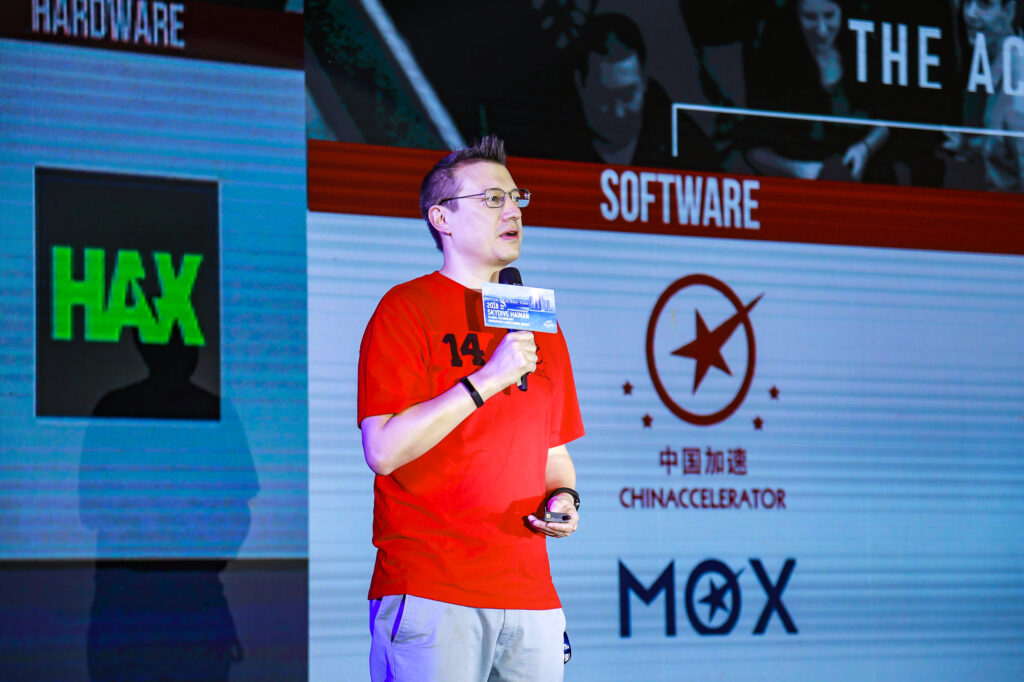
AP: Lastly, what’s your favourite book?
WBB: I recommend Kissinger on Kissinger by Winston Lord, my uncle who I mentioned earlier. He worked for Kissinger probably longer than anyone else and through some really momentous period in history. The book is a series of interviews that my uncle and his friend did with Henry Kissinger. The book goes through negotiation skills, strategy, leadership and also some stories of Asia. Henry Kissinger was one of the best diplomats in the 20th century and also in our current century. He’s got a lot to give. That’s looking backwards.
Looking forward, the media is not free. If you want good media that informs, you need to pay for it. Since Google and Facebook keep all the ad revenue, the people who create content can no longer afford to create great content based on ad revenue anymore. I recommend that you find a paid niche media to support. An acquaintance of mine started something called Substack, which unfortunately I did not invest in. Check out Sinocism by Bill Bishop on Substack if you care about China politics and current events. I’d like to also recommend The Information and The Wire China. Alternatively, read mainstream publications like the New York Times, The Financial Times or The Wall Street Journal. It doesn’t matter which one but spend some money and support the media. Because if you don’t pay for it, it won’t be there anymore.


